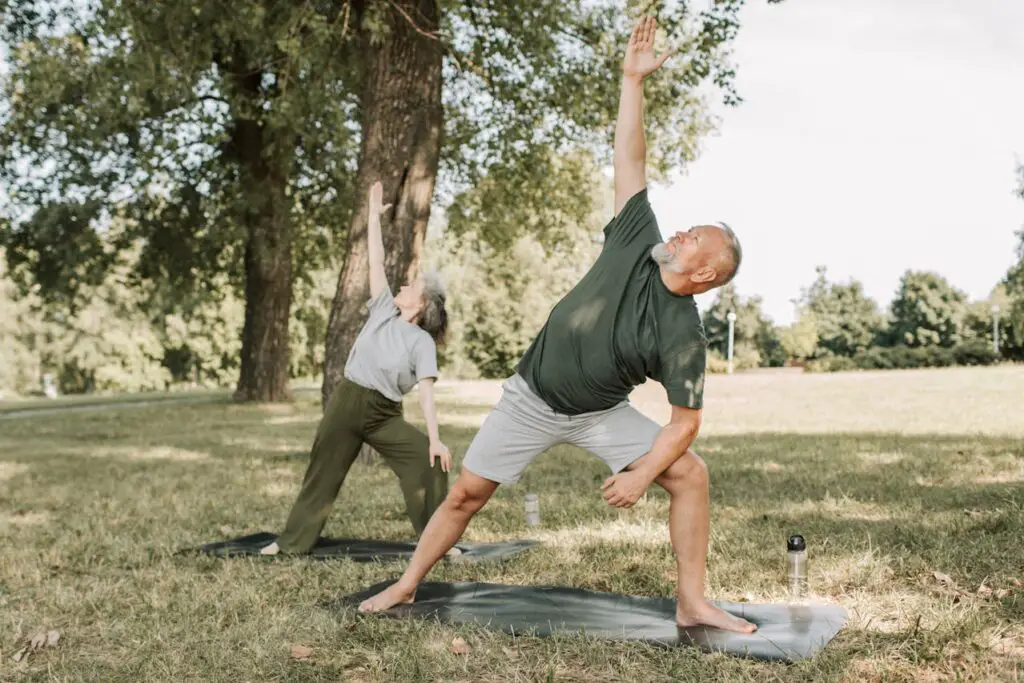How to Power Through the Day: 9 Smart Ways to Beat the Afternoon Slump Without Caffeine

We have all been there—that dreaded mid-afternoon crash when energy takes a nosedive, focus disappears, and even the simplest task feels like climbing a mountain. For many people, the automatic response is to pour another cup of coffee or reach for an energy drink. But while caffeine can provide a temporary lift, it often leads to jitters, dependency, and disrupted sleep patterns. The good news is that you do not need caffeine to stay sharp and productive through the afternoon. In fact, there are plenty of natural, effective ways to keep your brain alert and your body energized without any caffeine at all. Whether you are at your desk, working from home, or managing a busy household, here are nine smart and science-backed ways to beat the afternoon slump the natural way.
1. Take a Quick Walk Outside

One of the simplest and most effective ways to shake off the afternoon slump is by stepping outside and taking a brisk 10 to 15-minute walk. Natural sunlight helps regulate your circadian rhythm and increases your levels of vitamin D, both of which play a role in boosting alertness and improving mood. The act of walking increases circulation, delivering more oxygen and nutrients to your brain and muscles, which helps fight fatigue and sharpen your focus. Plus, being in nature—even briefly—can lower stress and reduce mental fatigue. Whether you walk around the block, visit a nearby park, or pace in your backyard, a bit of movement and fresh air can recharge your body and clear your mind.
2. Eat a Protein-Rich Snack

Many people experience a drop in energy during the afternoon due to fluctuating blood sugar levels, especially if lunch was heavy in refined carbohydrates or sugar. To stabilize your blood sugar and prevent that dreaded crash, reach for a snack that is high in protein. Protein takes longer to digest than simple carbs, which means it helps provide sustained energy without the spike and drop effect. Some great options include a hard-boiled egg, Greek yogurt, cottage cheese, hummus with veggie sticks, or a handful of nuts and seeds. For even more staying power, pair your protein snack with healthy fats or fiber-rich veggies to help you stay full and energized longer.
3. Stretch and Move Your Body

If going for a walk is not practical, try getting up from your chair and doing a few stretches or light movements. Prolonged sitting, especially in poor posture, can reduce circulation and cause muscle stiffness that contributes to fatigue. Standing up to stretch increases blood flow and relieves physical tension, which can help wake you up both mentally and physically. Try rolling your shoulders, reaching for the ceiling, doing side bends, or even doing a few yoga poses right by your desk. Five minutes of stretching can make a significant difference in your alertness and reduce that sluggish feeling.
4. Hydrate Like You Mean It

Dehydration is one of the most overlooked causes of fatigue and sluggishness, particularly in the afternoon when your body has already gone through hours of work and energy expenditure. Even mild dehydration can reduce your ability to concentrate and make you feel tired. Instead of reaching for coffee or soda, try drinking a tall glass of water. For a little extra flavor and a refreshing twist, infuse your water with slices of lemon, cucumber, mint, or berries. You can also sip on herbal teas like peppermint or ginger, which are caffeine-free and have natural invigorating properties. Making hydration a regular habit can go a long way in preventing afternoon fatigue and supporting overall health.
5. Try a Power Nap (Yes, Really)

Sometimes your body is not asking for more stimulation but rather a moment to rest and reset. A short nap in the afternoon—between 10 and 20 minutes—can do wonders for your mental clarity, creativity, and mood. The key is to keep it short so you do not enter deeper stages of sleep, which can leave you groggy and even more tired. A power nap helps restore alertness and improve performance without the need for caffeine or sugar. If you are working from home or have a private space, close your eyes, set a timer, and allow yourself to doze briefly. Think of it as a productivity tool rather than a sign of laziness—many successful professionals and entrepreneurs swear by power naps for good reason.
6. Do a Brain Teaser or Change Tasks

Mental fatigue often sets in when you have been focused on the same task for an extended period. If you feel yourself zoning out, take a break and switch to a different activity that engages another part of your brain. This could be a creative task, something hands-on, or even a quick brain teaser like a crossword puzzle, Sudoku, or word game. Doing a short mental challenge can help refresh your thinking and re-engage your attention span. Alternatively, shift to a more stimulating project that you find interesting or rewarding, which can naturally boost motivation and energy. Sometimes, all it takes is a change in focus to shake off the mental fog.
7. Breathe Deeply and Practice Mindfulness

Mindfulness techniques such as deep breathing exercises can significantly reduce stress and increase focus—both of which are crucial for overcoming the afternoon slump. Try this simple technique: inhale deeply through your nose for four seconds, hold the breath for four seconds, then exhale slowly through your mouth for four seconds. Repeat this for a few minutes. This type of breathing calms your nervous system, improves oxygen flow, and can ground you in the present moment. If you have more time, guided meditations or short body scans can be incredibly effective at reducing anxiety, improving clarity, and enhancing mental stamina. These exercises require no equipment, no caffeine, and can be done anywhere—even at your desk.
8. Listen to Uplifting Music or Nature Sounds

Audio has a powerful impact on our energy levels and emotions. Listening to upbeat music can lift your mood, increase your motivation, and help you power through the rest of your day. Choose your favorite high-energy playlist or instrumental tracks that make you feel positive and focused. If you need something calming rather than energizing, try nature sounds like ocean waves, birdsong, or a soft rainstorm. These sounds have been shown to reduce stress and promote a sense of well-being, which can improve focus and productivity. Put on headphones and take a five-minute audio break to reset your mood and your brain.
9. Let in Natural Light and Fresh Air

Your environment plays a significant role in how alert and energized you feel during the day. Dim lighting, stale air, or a stuffy room can make you feel more tired, even if you had a good night’s sleep. If possible, open a window to allow fresh air to circulate and let in natural light. Exposure to sunlight helps regulate your body’s internal clock and increases serotonin production, which boosts mood and energy. If you are working in a dark or windowless space, consider using a light therapy lamp designed to mimic natural daylight. Small adjustments to your surroundings can create a more energizing atmosphere and help you stay mentally sharp without needing another cup of coffee.
Final Thoughts

Beating the afternoon slump does not require caffeine, sugar, or a miracle energy drink. By making intentional choices like moving your body, staying hydrated, getting fresh air, and supporting your mental well-being, you can maintain focus and energy through the entire day. These natural strategies are not just good for your productivity—they support better sleep, long-term health, and emotional balance. Try mixing and matching a few of these techniques to see what works best for you. Once you start implementing them consistently, you will be surprised how little you need caffeine to feel alert, productive, and ready to take on the rest of your day.
Leave a Reply